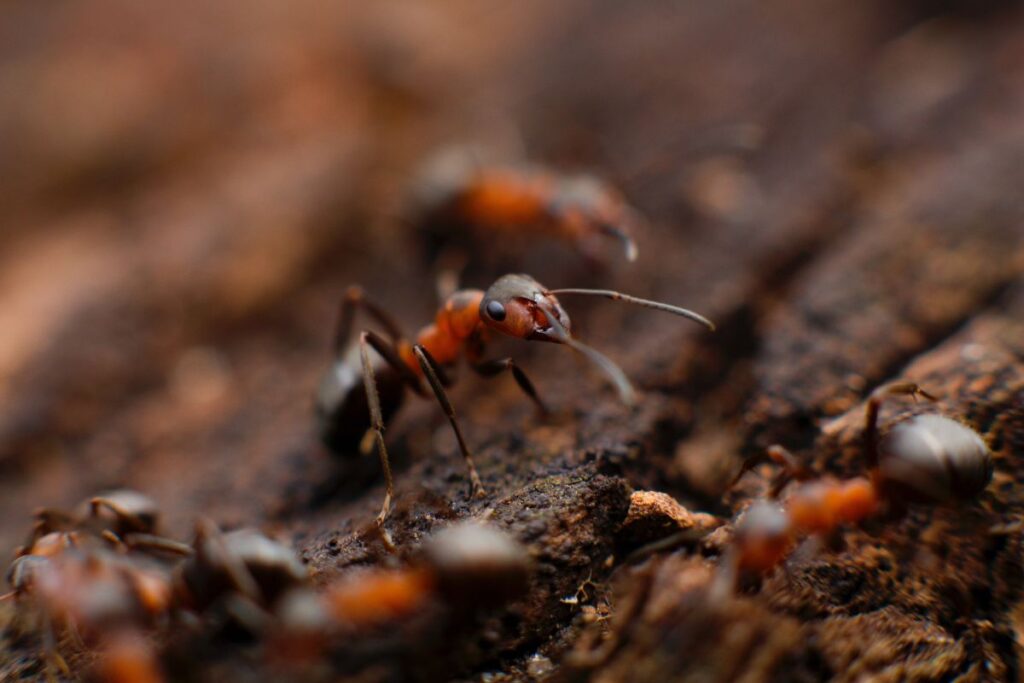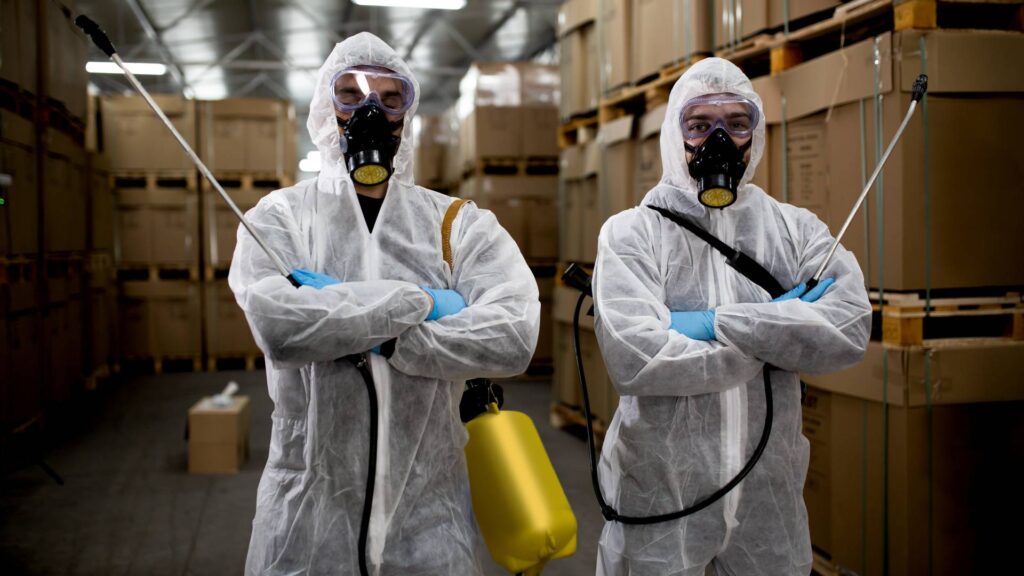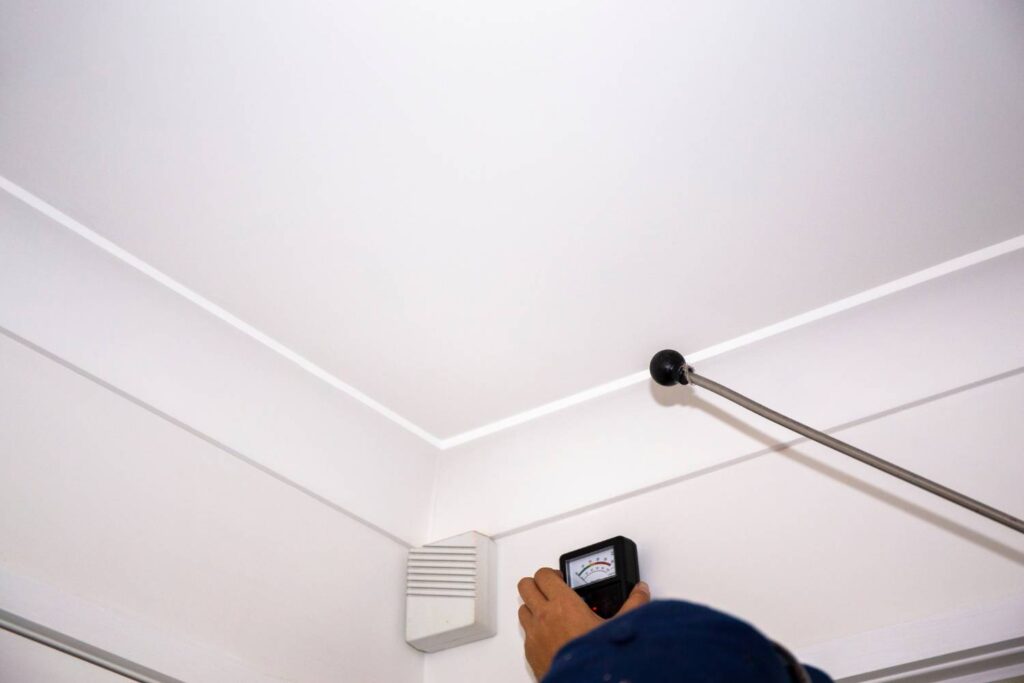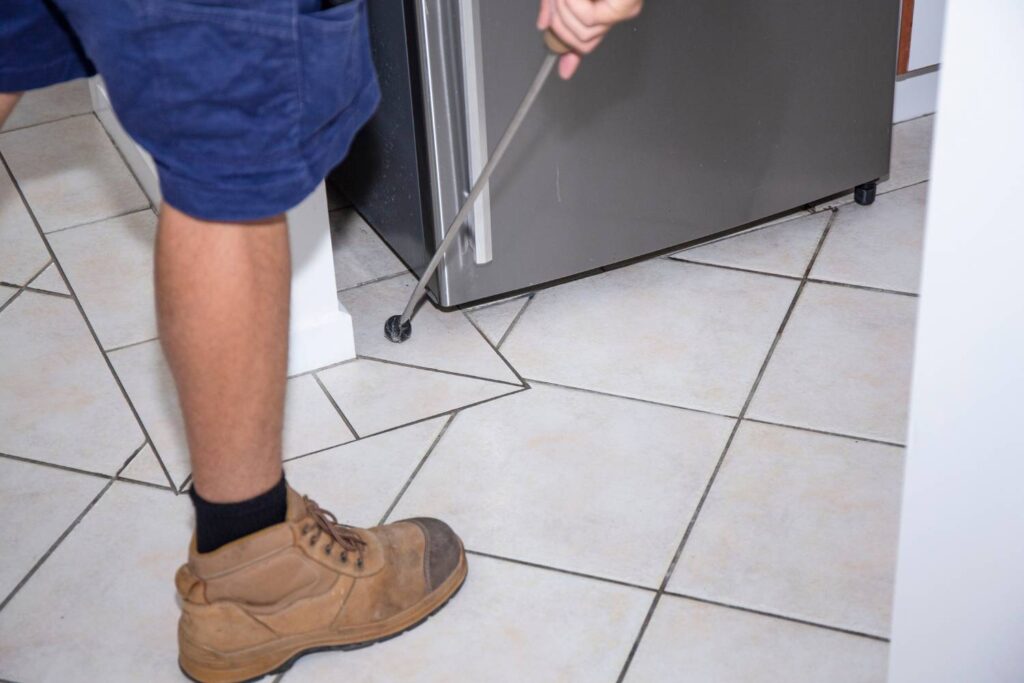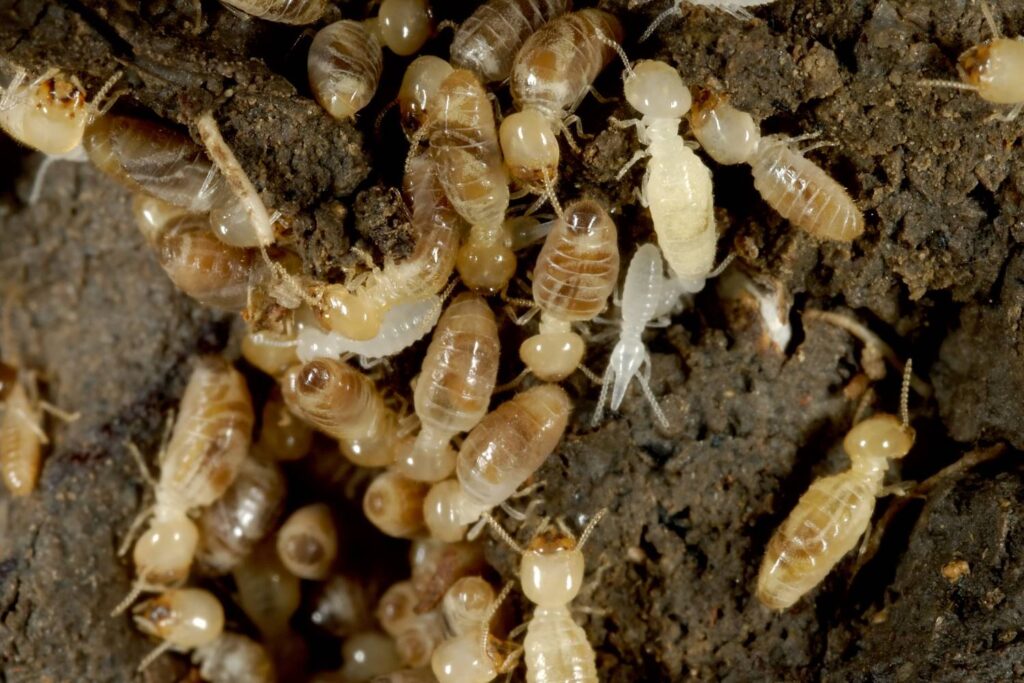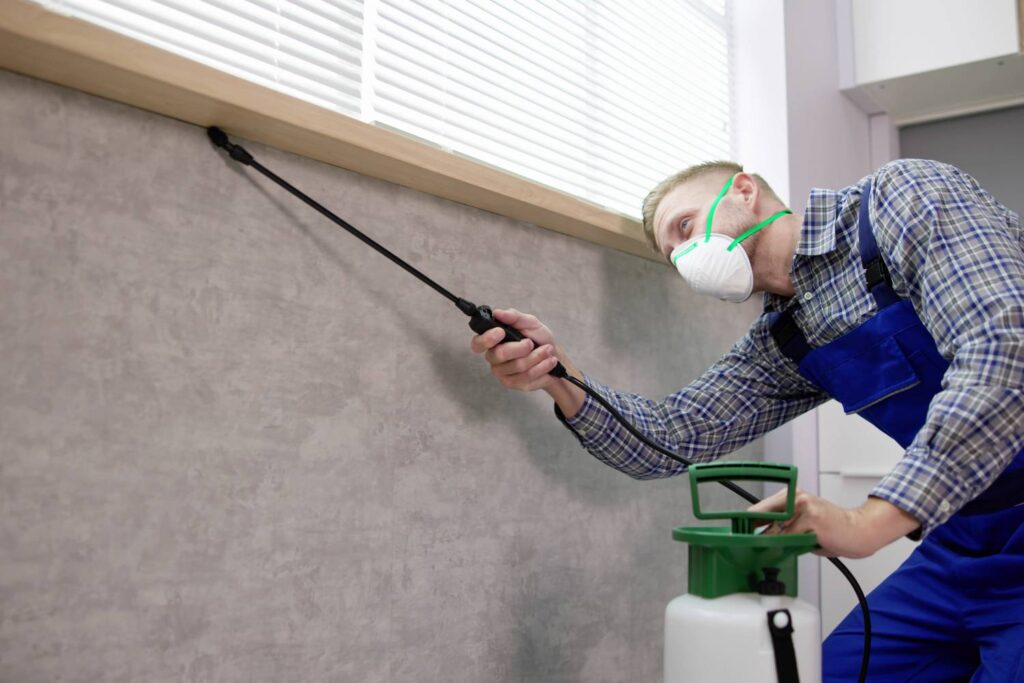Insects, rodents, and other pests are major health and property risks. They pose health risks, harm property, and pollute food supplies. Having pests in the house can make us feel uneasy and ashamed, especially if we have company. In addition, pest control services can be costly, and some people may question the necessity of doing so.
Always keep in mind that avoiding a problem is preferable to fixing one. Pests can be kept at bay with consistent cleaning and care. Preventing pests from entering your home can be as easy as ensuring all food is stored in airtight containers, repairing leaky pipes, and closing cracks or fissures. You should immediately contact a professional pest control agency if you discover any pest activity. They have the expertise, experience, and resources necessary for efficient pest control.
The information provided should help you decide with confidence whether or not to spend money on pest control services. Keeping your house pest-free helps to be aware of the issues pests can create and the significance of prevention. In addition, a pest control service has the experience and equipment to help you get rid of unwanted bugs in your house. This post will educate you on the benefits of pest management, so read on.
Pest Inspection Factors
Many individuals put off conducting a pest check until it is too late, even though it is a crucial part of home upkeep. Termites, rats, and insects, among others, can harm a building if they are allowed to roam free. They are dangerous to the building's structure and the people living or working there.
- Your home's age and build quality. More frequent pest management inspections may be necessary if your home has been demonstrated to be susceptible to pests or if your home is older. After the inspection, the technician will review his findings with you and give recommendations for how to proceed with treatment or extermination, if necessary.
- It may be necessary to conduct pest inspections on a property more frequently if it is located in an area with a high pest population density or a large amount of nearby vegetation. It may be required to have more frequent pest inspections if you reside in a *hot-spot* to safeguard your house and avoid pests and damage. Sydney has certain high-risk regions for termite infestations that need regular checks.
- Checking for visible indicators of termites is usually required during a standard termite inspection. To identify if termites are present in your home, technicians will use various tools, including visual inspection, to look for evidence of structural damage.
What Are Pest Control Methods?
It might be difficult to discover an efficient technique of pest control, especially after numerous unsuccessful attempts. Keep in mind that these techniques will work better or worse depending on the kind of bug, the level of infestation, and other circumstances. If you want to get rid of bugs, it's best to consult an expert first.
In this piece, we addressed the widespread issue of pest management and offered some suggestions for addressing it. Homeowners, farmers, and business owners may efficiently combat pest infestations by employing a variety of pest management strategies.
Chemical Control
The vast majority of pests are eliminated by applying pesticides, including insecticides, fungicides, and herbicides. The pests' metabolism, neurological system, or reproductive system can be disrupted by these substances, leading to their death or infertility. Chemical management is efficient, but it can potentially harm non-target creatures, ecosystems, humans, and pets. It's a final resort you should only utilise if all else fails.
Biological Control
Using parasites or natural predators to manage pest populations is at the heart of this strategy. For example, aphids on plants can be controlled by releasing ladybirds to feast on them. This approach is safe for the ecosystem and has the potential to be very efficient in reducing pest populations. However, unlike chemical control, it may take some time to see results.
Physical Control
Using traps, mechanical devices, and other physical means to exclude or capture pests is central to this strategy. Examples are caulking holes and cracks, putting up mesh screens on windows, and setting up glue traps. Physical control is efficient, but it needs constant upkeep to function properly.
Cultural Control
This strategy involves making adjustments to pest habitats. The elimination of breeding grounds for mosquitoes, the reduction of food sources for pests through good sanitation practices, and the introduction of pest-resistant crop varieties are all examples. Cultural control is most commonly employed in agricultural contexts but has broad applicability.
Integrated Pest Management (IPM)
This strategy calls for combining the abovementioned tactics effectively and sustainably combat pests. Integrated Pest Management (IPM) is an approach that utilises cultural and physical techniques to prevent pest infestations before they even start. Chemical control is used sparingly and precisely to lessen collateral damage to ecosystems and non-target creatures. IPM is a kind of method for controlling pests that is efficient and gentle on the environment.
The Importance Of Pest Control And Why You Need It
If you own a house, check that there is no reason to worry about it being broken. Insects, termites, and rats aren't as obvious as human intruders, but they may sneak in and do a lot of harm anyway.
Protects Your House And Structure From Destruction
As was previously said, they pose a significant threat due to the extensive damage they may do to your property. Even if your home or property appears to be in good shape on the surface, insects like termites can cause extensive damage to the underlying framework. They weaken the timber to the point of collapse by eating it. As a result, you and your loved ones residing there are in danger. Because of this, routine pest control is an absolute must.
Reduces The Risk Of Allergies
They can trigger respiratory issues or allergic reactions like asthma. For example, a skin rash commonly reacts to bites from bed bugs and mosquitoes. Cockroach infestations are a leading cause of asthma attacks in children. However, these risks can be mitigated and even eliminated with routine pest control services.
Prevents Diseases And Many Health Issues
Did you know that an infestation might cause a urinary tract infection? In addition, the cost of the individual's hospitalisation rises precipitously as their condition deteriorates. In the absence of medical care, you put your health at risk in similar ways. This is why routine pest control service is essential.
Avoid Having Your Carpets, Clothes, And Furniture Destroyed.
Beehive removal, since they eat things like wood, cloth, etc., can cause much damage. In addition, termites have a nasty habit of gnawing their way into hardwood furniture and destroying it as they tunnel through it.
Clothes and rugs can be eaten away by moths, causing costly repairs or even replacement. Controlling pests is crucial if you value your home's wooden furnishings, carpets, and clothing.
Taking Care Of The Food Supply
Unsafe food storage is a common cause of food waste. When pests like rodents, termites, and cockroaches have unrestricted access to a food source, they can contaminate it to the point that it is unsafe for human consumption. Consequently, we have no choice but to throw it away.
When this occurs, the only option for getting rid of the pests for good is to use a pesticide. Maintain a spotless environment at all times. So you can be sure you aren't helping these pests establish a colony in your house.
What You Need To Know About Pest Inspections?
Whether buying, selling, or keeping your house in good shape, a thorough pest inspection is necessary. Professionals with extensive experience and education in pest identification and repair work often conduct these tests. This article will provide an overview of pest inspections, including their significance, their process, and how to locate a reliable professional.
Importance Of Pest Inspection
There are several reasons why pest inspections are crucial. First, they can aid in detecting any pests, such as termites, ants, rodents, and others, on a property. The value of the property and the possibility of a sale are both affected by the details disclosed here. If a home is found to have a severe termite infestation, for instance, the property's value might drop dramatically, and the seller might have to take action to fix the problem before the sale can go through.
Second, keeping a home free of pests is crucial to its stability and security. Pests, especially termites, may eat away structural elements like wood and insulation, causing costly wear and tear over time. If not addressed, this kind of wear and tear can undermine the building's framework, making it dangerous for residents and perhaps leading to expensive repairs.
Lastly, regular pest inspections are crucial for stopping pests from moving to neighbouring buildings. If a pest infestation is discovered on a property, immediate action must be taken to eliminate the problem and stop it from spreading to neighbouring homes.
Pest Inspections—What's Involved?
During a pest inspection, a trained professional will visually examine the home from top to bottom, inside and out. Droppings, nests, damage to wood or other materials, and the presence of live or dead bugs are all things an inspector will look for. They will also be on the lookout for places of high heat and humidity on the land and locations with a lot of moisture or standing water.
The inspector may not just rely on their eyes during an inspection; they may also use specialised instruments and equipment. For example, moisture metres can reveal damp spots, while thermal imaging cameras can reveal temperature shifts that may indicate pest activity.
The inspector will then give a full report of their findings once the inspection is done. Photographs of any pests or damage identified may be included in this report, along with suggestions for fixing and avoiding the problem in the future.
Finding A Reliable Pest Inspector
It is crucial to hire a trustworthy and knowledgeable professional for pest inspections. Here are some suggestions for locating an appropriate inspector:
Check Their Credentials
Find an inspector who has experience and credentials in the field of pest control. In addition, they should have the appropriate licencing, insurance, and documentation to back up their claims.
Look For Reviews
You may learn much about a company's skills and customer service by reading online reviews and comments from satisfied customers.
Ask For Referrals
Seek advice from people you know who have recently undergone a pest inspection.
Compare Prices
Although cost shouldn't be the only consideration, shopping around for inspector quotes is essential for finding the best deal.
Ask Questions
Please don't hesitate to question the inspector on their process and results. A reliable inspector should be eager to answer your questions and review their inspection procedure.
Conclusion
Although professional pest control services might be pricey, regular cleaning and maintenance are essential in preventing insect infestations. Expert, well-equipped, and trained professionals in the pest control industry are the best bet for eliminating unwanted visitors from your home.
Termites, rats, and insects can cause significant damage to a structure, thus regular pest inspections are an important element of preventative maintenance. In this piece, I'll explain why pest control is important. If the house is old or in a pest-prone area, it is imperative to have a pest management examination performed.
It is imperative to conduct a termite inspection in high-risk areas. Methods for eradicating pests might change based on factors such as the type of pest, the severity of the infestation, and the location. If you need help eliminating pests, it's best to speak with a professional first.
Many pest control tactics that may be used by individuals and organisations to successfully combat pest infestations in their homes, farms, and businesses. Chemical management is effective, but it carries the risk of harming wildlife, ecosystems, humans, and pets that aren't the intended targets.
When it comes to lowering pest populations, biological control has the potential to be both safe for the environment and highly effective. Using traps, mechanical devices, and other physically invasive methods to exclude or capture pests is known as "physical control." Modifying pest habitats is a key component of cultural control.
Preventing insect infestations from the outset is the goal of Integrated insect Management (IPM), which employs both cultural and physical methods. Protecting your home and building from destruction, lowering the danger of allergies, preventing infections and various health issues, and preventing the destruction of your carpets, clothes, and furniture are all reasons why regular pest control services are vital.
Content Summary
- Insects, rodents, and pests pose health and property risks.
- Pest control services can be costly.
- Consistent cleaning and care can help keep pests at bay.
- Food should be stored in airtight containers to prevent pest infestation.
- Leaky pipes and cracks should be repaired to prevent pests from entering the home.
- Professional pest control agencies have the expertise and resources for efficient pest control.
- Pest inspections are a crucial part of home upkeep.
- Termites, rats, and insects can cause damage to the building and its structure.
- Pest inspections may be necessary more frequently for older homes or those susceptible to pests.
- Areas with high pest population density may require more frequent pest inspections.
- Sydney has high-risk regions for termite infestations that need regular checks.
- Visible indicators of termites are checked during a standard termite inspection.
- Chemical control is an efficient method of eliminating pests but may harm non-target creatures and the environment.
- Biological control uses natural predators or parasites to manage pest populations.
- Physical control involves using traps and mechanical devices to exclude or capture pests.
- Cultural control involves making adjustments to pest habitats to prevent infestations.
- Integrated Pest Management (IPM) combines various strategies effectively and sustainably.
- Pest control protects the house and structure from destruction caused by pests.
- Routine pest control reduces the risk of allergies triggered by pests.
- Pest control prevents diseases and other health issues caused by infestations.
- Pests can cause damage to carpets, clothes, and furniture.
- Moths can eat away clothes and rugs, requiring costly repairs or replacement.
- Pest control helps in taking care of the food supply and prevents contamination.
- Pest inspections are necessary when buying, selling, or maintaining a house.
- Pest inspections detect pests on a property and can impact its value.
- Pests like termites can cause structural damage and expensive repairs if not addressed.
- Regular pest inspections prevent pests from spreading to neighboring buildings.
- Pest inspections involve a thorough visual examination of the property.
- Specialized instruments and equipment are used during pest inspections.
- It is important to hire a trustworthy and knowledgeable pest inspector with appropriate credentials and reviews.
Frequently Asked Questions About Spending Your Money On Pest Control
It is generally safe to be around pest control as long as proper precautions are taken. Pest control professionals are trained to use chemicals and traps in a safe and effective manner, and they follow guidelines and regulations to minimize any potential risks to humans and pets.
However, it is important to follow any instructions or guidelines provided by the pest control professional. This may include temporarily vacating the premises during treatment, covering or removing food and dishes, and keeping pets and children away from treated areas until the chemicals have dried or dissipated. Additionally, it is important to choose a reputable pest control company that is licensed and insured, and to communicate any concerns or questions you may have with the technician.
Pest control services use safe and effective methods to manage pests while minimizing the risk to humans and pets. However, it is important to follow any instructions or precautions provided by the pest control service.
Whether pest control is worth doing depends on the specific circumstances. In general, pest control can be worth doing if you are dealing with a pest infestation that is causing damage to your property or posing a health risk to you or your family.
Pests such as termites, rodents, and cockroaches can cause extensive damage to your home or business, while other pests such as mosquitoes, ticks, and rodents can transmit diseases. In these cases, pest control measures can help to prevent further damage or spread of disease.
However, if you are not experiencing any pest problems or the pests are not causing significant harm, then pest control may not be necessary. In some cases, taking preventative measures such as sealing up entry points, keeping your property clean and tidy, and storing food properly may be enough to deter pests.
Ultimately, the decision to pursue pest control should be based on an assessment of the potential risks and benefits in your specific situation. Consulting with a reputable pest control professional can help you make an informed decision.
Pests Give Health Risks. The pest carries several diseases like dengue fever, Zika virus, malaria, encephalitis, chikungunya, and more. Once the pest bites you, there is a chance you can get sick from it. Cockroaches, rodents, and ants are other pests that can cause health problems because they also transmit diseases.
Advantages of biological pest control:
- Environmentally friendly: Biological pest control uses natural enemies to control pests, which means that it does not rely on synthetic chemicals that can harm the environment.
- Long-term effectiveness: Biological pest control can provide long-term control of pest populations, as natural enemies can establish themselves and continue to control pests even after initial releases have been made.
- Reduced resistance: Biological control agents are less likely to develop resistance to pests compared to synthetic chemicals, which means that they can be used more sustainably over time.
Disadvantages of biological pest control:
- Limited effectiveness: Biological pest control may not be effective in controlling all types of pests, and it may not be able to provide immediate relief in situations where pest populations are already high.
- Unpredictability: Natural enemies may not always behave as expected, and they may not be as effective in controlling pest populations in some situations.
- Cost: Biological pest control can be more expensive than chemical methods, as it requires the breeding, transport, and release of natural enemies. Additionally, it may take longer to see results from biological pest control methods.





